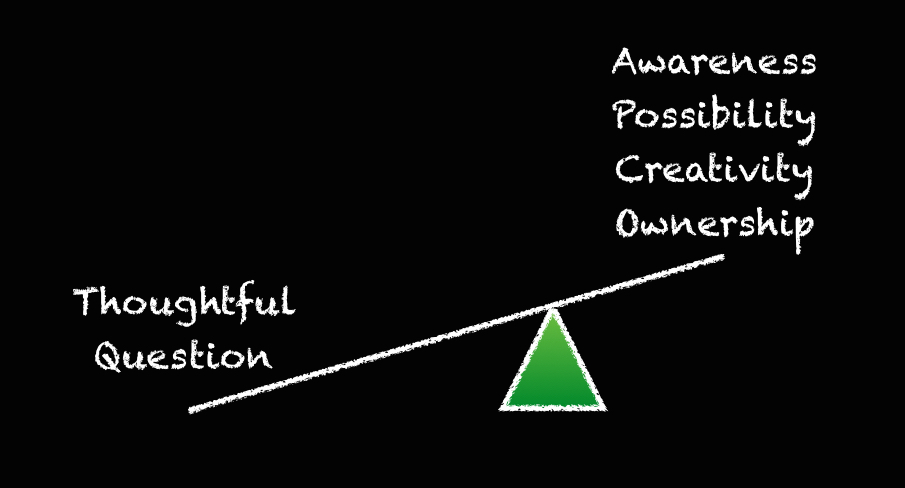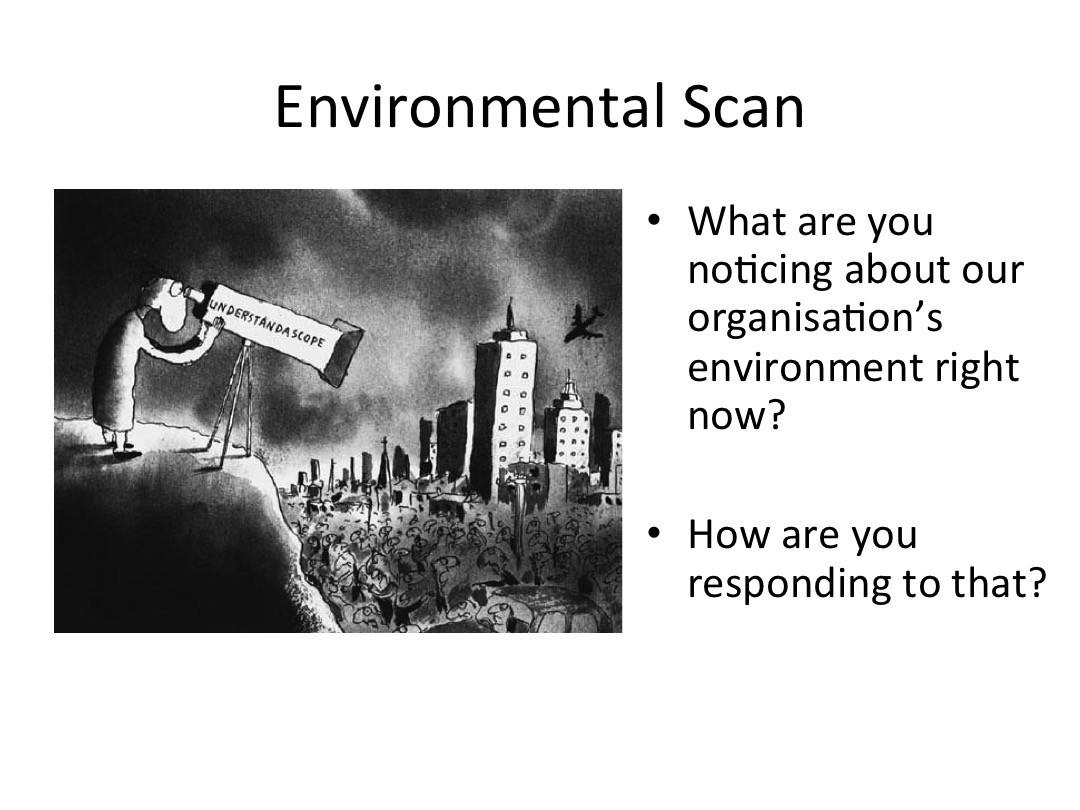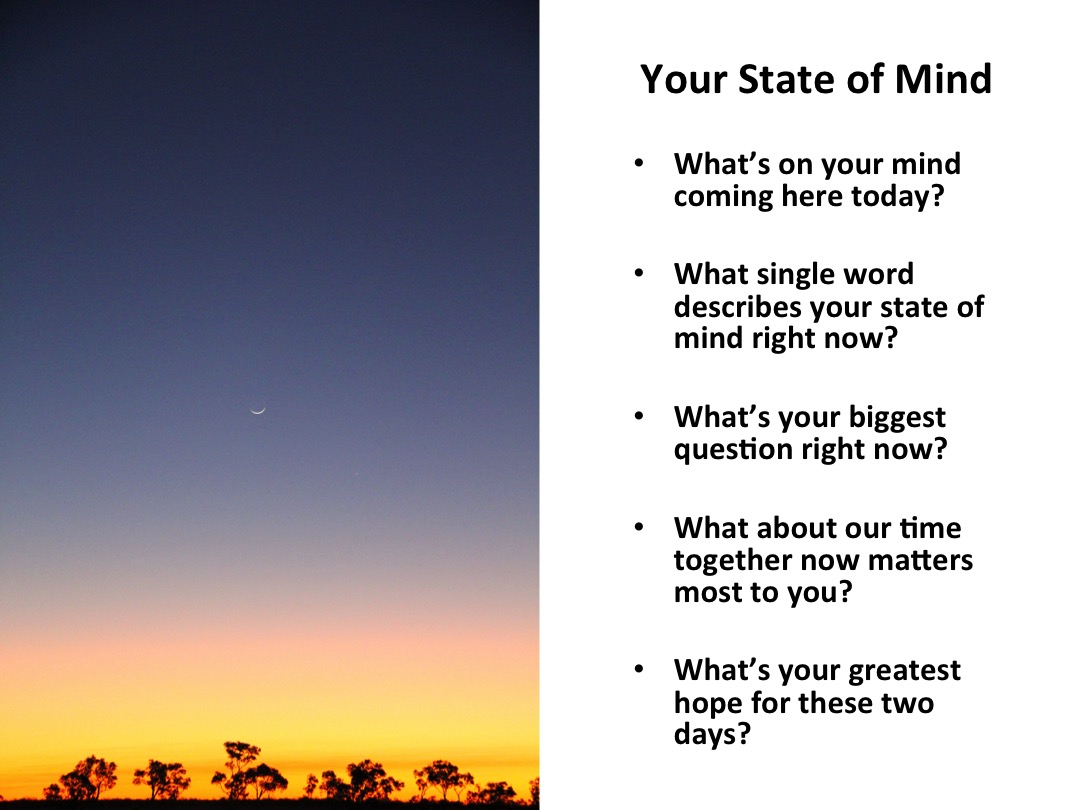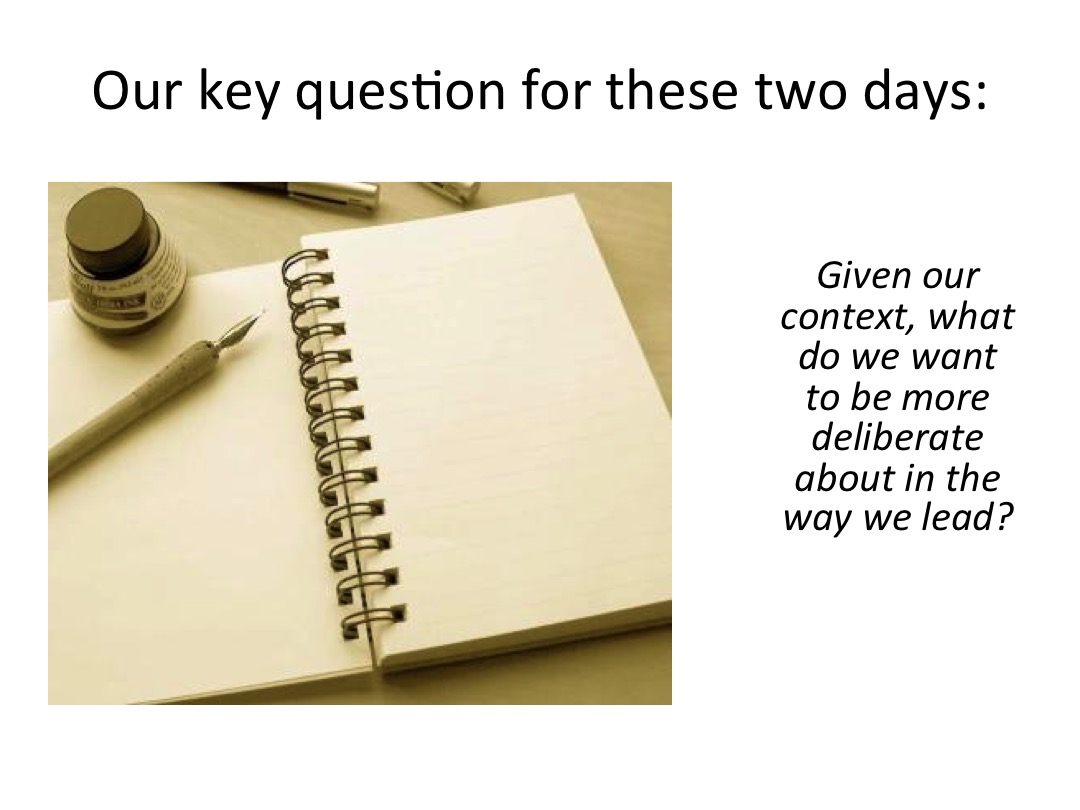
Lead With Questions
15th Jun 2017Last week, I was reminded of the awesome, and underutilised power of leading with questions.
A colleague and I spent two days together with a group of up-and-coming leaders. They’re an energised, talented group, hungry to learn and to make an impact on their organisation. A joy to work with.
As facilitators, my colleague and I had a bunch of ideas for what we could have done with them over those two days.We had a run plan. There were certain leadership topics we thought we’d cover with them, and we had the content and activities ready to go.
And, we chose to lead things off with some questions. Questions that we thought would stimulate thinking, connection, and insight. So in the morning session of the first day, we kicked off with this slide:
 Now, we thought these might take us an hour to discuss. We spent over two. The conversation was rich, unhurried and thought-provoking. You could feel the engagement in the room. The organisation had been going through a tough few months, and we soon realised that the group had a strong need to make sense of what was going on. If we’d tried to rush it and stick to the run plan, I think we’d have lost the group. Anything we’d tried to teach or tell them would have washed over them. They weren’t ready to engage with new content just yet.
Now, we thought these might take us an hour to discuss. We spent over two. The conversation was rich, unhurried and thought-provoking. You could feel the engagement in the room. The organisation had been going through a tough few months, and we soon realised that the group had a strong need to make sense of what was going on. If we’d tried to rush it and stick to the run plan, I think we’d have lost the group. Anything we’d tried to teach or tell them would have washed over them. They weren’t ready to engage with new content just yet.
We followed that first slide with this one:

These questions caused a shift in focus from ‘out there’ (environment) to ‘in here’ (self). There was a quieter, more reflective mood in the room, with the conversation unearthing what was most important for people to work on in their leadership. Leading up to lunch, the group were grounded, oriented to the future, and ready to do work together.
After lunch, we framed the rest of our time together with this slide:

From that point, we were away. Everything we did came back to that question. We covered lots of territory, including leadership culture, leadership networks, deep listening, uncovering assumptions, and influence. My colleague and I taught some stuff, but mostly the leaders learned from each other. By the end of our time together, this diverse group had a) real ownership for leading a range of organisational issues, and b) developed deep connection and support across the group to make it happen. The catalyst was a handful of deliberate, thought-provoking questions.
So what’s this all about?
I’ve noticed that most leaders (and trainers, for that matter) generally still live in a world of ‘tell’. The need to have the answers, be the expert, show the way. Setting the agenda and driving through the “stuff”. That’s fine in some contexts, like when the answers are obvious, or you can rely on what worked in the past to work in the future. But of course, that’s increasingly unlikely when you’re expected to lead in a world where old blueprints need to be thrown out and new approaches invented. As I’ve written about before, we need a more curious approach.
In this context, there’s huge power in letting go of the need to tell, and instead shifting to asking questions. This requires a reframing of what it means to be a leader. A move away from being ego-centric. A move to towards other-centric (whether ‘other’ be another person, group or the system you’re in).
Here are some ideas about how you can lead with questions:
- Determine your intent. What is it that you want to occur during the conversation, and afterwards? I find it useful to break it down into “Think, Feel, Do”. What do you want people to think about? What do you want them to feel? What would you love to see them do?” Your answers to these questions will shape everything that follows.
- Frame your role. Imagine two roles: Teller and Asker. Given your intent, what percentage of your time do you think you need to spend in each? Hint: allow more time for asking than you’re comfortable with.
- Decide on the questions. These, of course, will depend on your intent. I find powerful questions have the following in common:
- You can’t possibly know the answer beforehand (so you have to be the “naive inquirer”)
- They’re not easy to answer
- They raise awareness
- The provide a focal point
- They generate possibility
- They generate responsibility and ownership
- They tend to start with ‘What’, ‘How’ or ‘Why’
Notice how the examples above have some or all of these elements.
So, here’s a challenge for you: over the next week, pay attention to how often you choose to lead with questions versus “telling”. Perhaps get yourself a ‘spotter’ to give you feedback on how you’re doing. When you ask a question where in the past you’d probably jump to giving an answer, notice what happens as a result.
Like this post? You’re only getting half the story. Sign up to my ‘Fresh Thinking’ newsletter, delivered monthly to your inbox.
Are you a Change Maker? Learn more about my Change Makers programme, including next intake dates.

